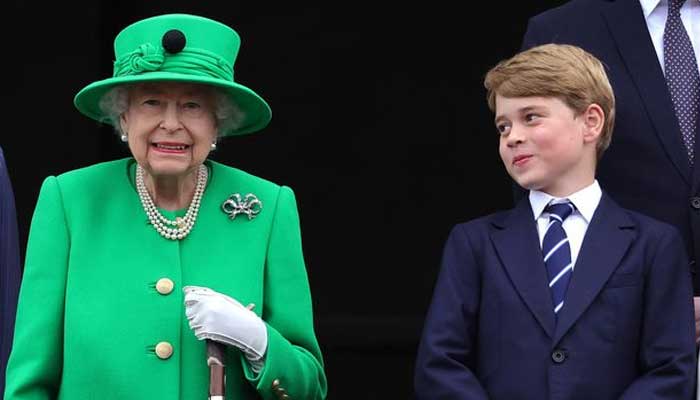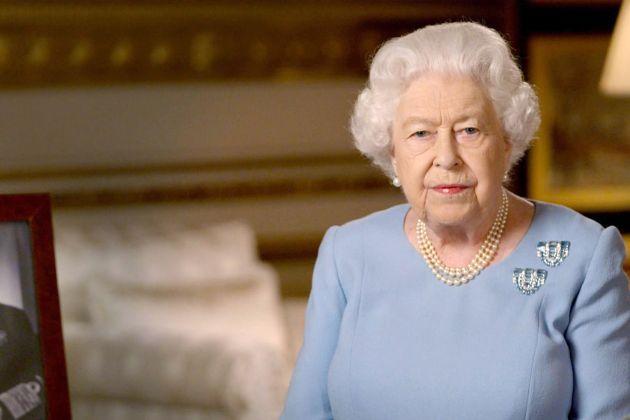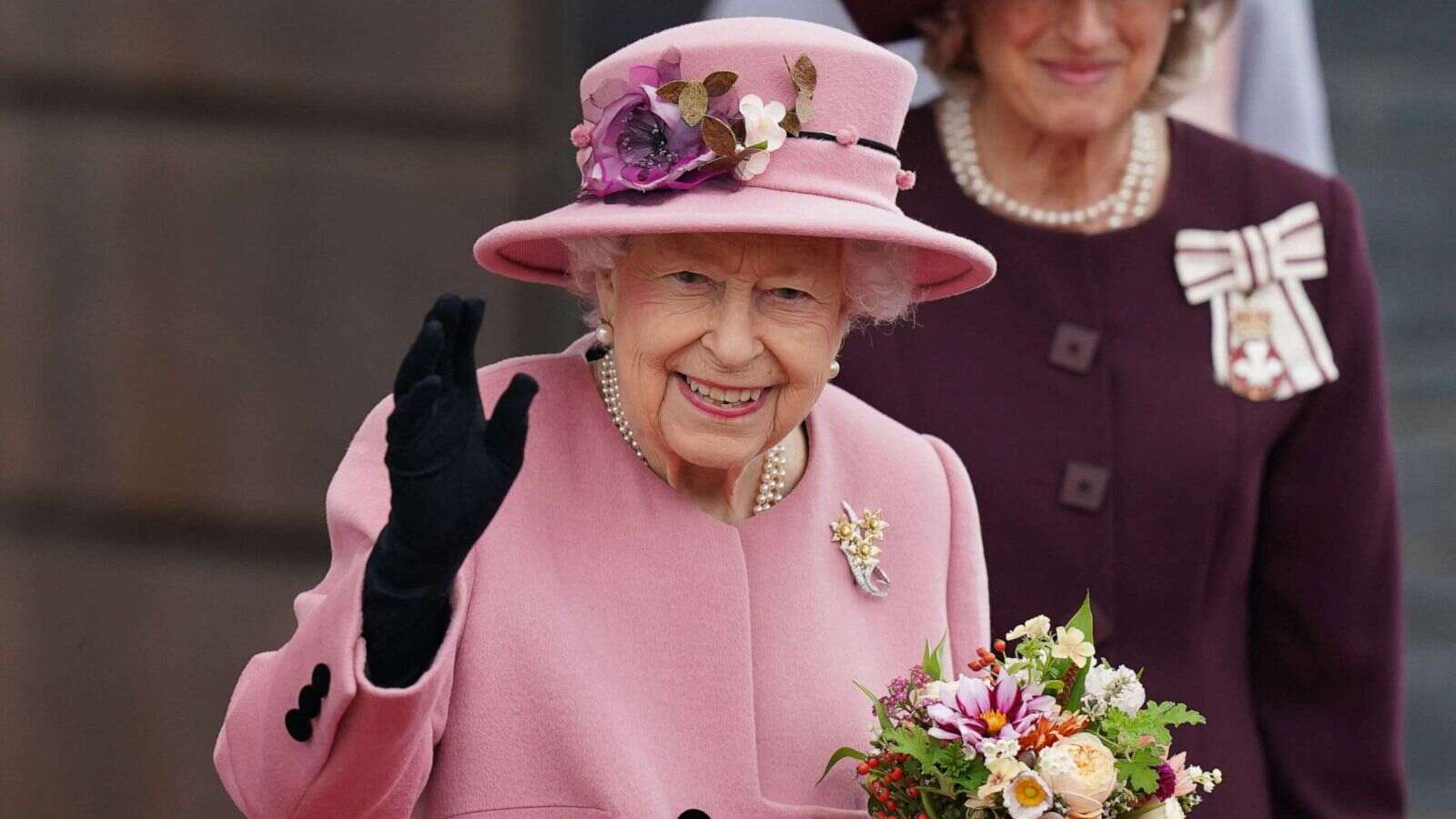Queen Elizabeth ii Health is of great concern for the British people and the government. The current issue of rising energy costs has caused many to worry about her condition. In this article, we will look at the role of Her health in British politics, her mobility issues, and the COVID-19 test.
Queen Elizabeth ii health
Queen Elizabeth ii Health has been undergoing treatment for a long-term illness and has been forced to abandon several engagements. During a service at Westminster Abbey and other major engagements, she reportedly used a walking stick and was forced to cancel a trip to Northern Ireland. In the past eight years, her health has been under scrutiny. In October of this year, she was forced to skip the Cenotaph service in Belfast due to stiffness and pain. She was also forced to rest for nearly a month following a sprain.
The Queen is unable to attend today’s Privy Council meeting due to her ill health. A spokesperson for the palace confirmed that the queen spent one night in hospital, but declined to elaborate. She has since returned to Windsor Castle. The Queen was scheduled to host a drinks reception for business leaders on Tuesday. It is unclear if the Queen will be able to attend the event on Wednesday.
A recent test indicated
The Queen has undergone several tests and diagnostic procedures following her illness. A recent test indicated that the Queen is suffering from a virus called COVID-19. This virus causes mild cold-like symptoms. She is expected to continue receiving medical attention and will follow all guidelines set forth by her doctors. However, she will not be able to attend the Commonwealth Day Service at Westminster Abbey or the Maundy Thursday concert at Westminster Abbey.
The Queen’s health has been a source of great concern in the past year. As her health has declined, her children have been staying with her in Scotland. In October, she canceled a trip to Northern Ireland. She reportedly stayed overnight at King Edward VII’s Hospital.
The Queen’s health has been the subject of intense media attention. She has recently been photographed smiling, but her mobility has deteriorated to a point where she is no longer able to attend the Privy Council. Her absence from meetings is causing a great deal of concern in the country.
Her role in British politics
Queen Elizabeth ii Health has been a subject of discussion in recent days, with political leaders expressing concern about her condition. The Archbishop of Canterbury said that the prayers of the nation were with her. Since her father’s death in 1952, she has been a symbol of stability and continuity for Britain, as it negotiated the end of the empire, the dawn of the information age, and the rise of a multicultural society. The monarch has attended public events, dedicated hospitals, and libraries, and bestowed honors on worthy citizens.
The monarchy also plays a significant role in British politics. While the UK Parliament is based in London, the Queen has formal roles with the devolved assemblies of Wales, Scotland, and Northern Ireland. As the head of the government, the queen has the power to appoint the leader of the party with the most seats in the House of Commons.
Celebrations

Elizabeth II gave out honors twice a year. The official celebrations take place on the second Saturday of June. Her birthday is in June, so she can always expect great weather. She did not choose the honorees herself; her government and committees of experts presented the list of recipients to her. Her role in British politics was to oversee the selection process.
The role of a monarch in British politics has evolved over hundreds of years. The monarch has two primary roles, one for the state and one for the nation. It is her job to represent the people of the UK and to be impartial. For seventy years, she juggled these two roles.
Queen Elizabeth II’s power was limited, however. In many cases, it was heavily constrained by constitutional conventions. She was a sovereign head of state and the head of the armed forces. She had the power to declare war and sign treaties, but only after consulting government ministers.
Queen Elizabeth had limited political power, but her influence was significant. She appointed fifteen prime ministers during her reign. Her final prime minister was Liz Truss.
Her mobility issues
Queen Elizabeth II has faced an uphill battle for some time with her mobility problems. In the past few months, she has been forced to cancel a number of royal engagements due to her deteriorating health. Her recent deteriorating condition has prompted her to use a walking stick at some engagements, and her doctors have told her to take it easy during the festive season, especially ahead of her Platinum Jubilee celebrations. Canadian Actress Kyla Matthews
However, despite her mobility issues, she has been determined to continue to walk. Her aides have been working to explore ways to help the Queen get around the Cloisters. One option involves delivering her to the Abbey at Poets’ Corner and seating her before the audience.
The Queen is not the only royal to experience mobility problems. Since her illness was first revealed in February, she has been unable to attend the majority of royal events and has been forced to attend most of them virtually or by phone. She was also found to have a viral infection called COVID-19 in February, although she recovered quickly. In March, she was unable to attend the Commonwealth Day church service in London. Instead, she watched the live broadcast from Windsor Castle.
Doctors
While her doctors are recommending the Queen to stay under close medical supervision, the Palace has said that the Queen is comfortable at her country estate, Balmoral. The Queen’s mobility problems have been affecting her ability to walk and stand. She has delegated more of her duties to her husband, Prince Charles. The four children are also staying with the Queen at Balmoral.
Since the start of her recovery from the infection, the Queen has canceled many engagements. Although she has returned to her office, her mobility problems have led her to limit her in-person activities. It is unknown whether she will continue the engagements she had earlier canceled.
Despite her mobility problems, the Queen still continues to read diplomatic papers, hold public engagements, and read newspapers. Despite the physical limitations, she is still expected to attend the gathering as a representative of her country.
Her COVID-19 test
After a week of news and speculation, Britain’s Queen Elizabeth II has been confirmed as having tested positive for COVID-19. She is 95 and suffering from a mild case of the virus. Despite the results, she plans to continue working as usual. Her illness comes as the royal family continues to deal with several scandals, including the settlement of a civil sexual assault lawsuit against Prince Andrew, and the investigation of his charity.
The Queen returned to public duties in April, meeting politicians, diplomats, and senior military officials. However, she struggled to walk during her first in-person engagement of the year, and she walked slowly and with the aid of a walking stick. She also revealed that her condition has caused her to feel she “cannot move.”
While it’s a shame that the Queen has been unable to attend the Cenotaph ceremony, she is confident that the illness isn’t life-threatening. In fact, she’s already been fully vaccinated and has had a booster shot.
After the announcement
After the announcement, messages of support began to pour in for the queen. Unlike earlier in the pandemic, there were far fewer concerns over her condition. Prime Minister Boris Johnson, meanwhile, outlined his government’s “living with Covid” plan, which is aimed at reducing the levels of testing and the need for self-isolation.
As the Queen continues her recuperation, she has returned to Windsor. She has also resumed audiences and regular duties. Despite the news, the Queen’s doctors have advised her to rest. After her recovery, she has scheduled major engagements for March.
How Does Queen Elizabeth ii Health Affect Her Daily Life?

With over 70 years on the throne, we have every right to wonder about the Queen’s health. We know Her absence from public life, and we know Her doctors are concerned about Her well-being. We also know Her political influence. But how does the Queen’s health affect her daily life?
Queen Elizabeth ii Health
Queen Elizabeth ii Health has been having a number of health issues in recent months, including trouble with her mobility. While she smiled in a picture taken Tuesday, she opted out of a virtual meeting with the Privy Council. The medical staff told her to rest. In February, she tested positive for COVID-19, a type of virus. The cancellation of the meeting shows how fragile the Queen’s health is.
BBC One and Sky news are focusing their coverage on the monarch’s health, with reporters wearing black suits. Some viewers have commented on the BBC’s black theme, while Sky news is airing a televised version of BBC One’s coverage. The BBC has suspended its regular schedule until 6 p.m. ET, and the broadcasters are showing clips from their coverage.
Team of doctors
The Queen’s health has been closely monitored for a long time. Her palace won’t release details, but the fact that the senior royals have been gathering at Balmoral suggests something is very serious. Prince Charles and Camilla are also at the royal residence. The royal household has its own team of doctors on call around the clock.
The queen’s health has been a major concern for the British public, particularly since she was not able to attend the Commonwealth Games opening ceremony in Glasgow. Prince Charles was asked to stand in for her, while the welcome ceremony was shifted indoors. The queen has also been absent from the highland games in Braemar, Scotland. Former Prime Minister Boris Johnson and incoming Prime Minister Liz Truss have visited her at Balmoral in recent days.
Queen Elizabeth II is 96 years old and has been suffering from health issues for the past several months. While doctors have advised her to rest for two weeks, she intends to attend a national service of remembrance for veterans on Nov. 14. The Queen spent her first night in a hospital in the past decade at King Edward VII private hospital.
The Queen’s health is the focus of the attention of the UK and US President Joe Biden. His wife, First Lady Jill Biden, sent a message of concern for the Queen on behalf of the US. Meanwhile, UK MPs heard details of the government’s energy policy and passed on notes regarding the situation.
Her absence from public life
During her platinum jubilee year, Queen Elizabeth ii Health will not make many official appearances due to her ill health. The queen had previously canceled engagements at the last minute and has had difficulty walking. Although doctors’ orders have not been confirmed, the royal family says the Queen is likely suffering from mobility problems.
The Queen has been in the hospital several times since early 2004. She was briefly unable to walk or ride her horse, but she was able to use a walking stick at the Westminster Abbey service on October 24. Her doctors also ordered her to cancel a trip to Northern Ireland, so she returned to Windsor Castle for light duties.
Since the beginning of 2018, she has been plagued by health problems and has had to cancel several engagements. She is unable to do some of her usual duties, including opening Parliament. She is also unable to travel to foreign countries. The Queen has been suffering from mobility problems for several years, which has hampered her appearance.
Favorite game
Despite their ill health, she made a point to maintain a balance between her personal life and her public duties. She also spent time with her corgis and horse stables. In addition to these interests, she also found ways to amuse herself. Her favorite game was called “catching out the minister.
Her health continued to be a subject of intense scrutiny. She had to deal with a bout of COVID-19, as well as intermittent mobility problems. Her absence from public events was the first time she had been hospitalized in over a year. Her doctors advised her to rest for two weeks and not take on too many responsibilities, including official visits.
In February 1952, the Queen became queen of seven independent Commonwealth countries. Her reign as a constitutional monarch spanned more than 50 years, including the Troubles in Northern Ireland, the decolonization of Africa, and the United Kingdom’s accession to the European Community. She also remained popular until her death.
Her doctors’ concerns about her health
Queen Elizabeth II’s doctors have expressed serious concern over the Queen’s health. They have recommended that the monarch remains under medical supervision at Balmoral castle. This decision follows several weeks of intermittent problems with her mobility. The royal family has been concerned about her condition and has rushed to be by her side.
The Queen has had health problems for the past year. She missed a number of engagements during the Platinum Jubilee celebrations in June. During one of these events, she appeared via hologram. In October 2021, she was hospitalized for one night, and she canceled a trip to Ireland. Medical doctors had advised her to rest for a period of time, but she returned to royal duties in November. Queen Elizabeth also tested positive for the COVID-19 virus in February, but she has since returned to her duties.
Despite being the longest-reigning monarch in history, Queen Elizabeth ii Health has scaled back her royal duties in recent years. This includes announcing her appointment of a new prime minister Liz Truss. Traditionally, the monarch makes appointments from Buckingham Palace, but she has now appointed a prime minister from her Scottish holiday home.
In October 2021
In October 2021, the Queen spent an unscheduled night at the Royal Hospital in central London. Despite the fact that the Queen’s health is still under scrutiny, her absence from these events raises questions about her well-being. Moreover, the Queen has delegated more responsibility to Prince Charles. She also skipped the State Opening of Parliament and the Trooping the Colour military parade. In addition, she made only two public appearances during the Platinum Jubilee.
As a result of the health concerns, Elizabeth has curtailed her public appearances. She mourned her husband Prince Philip’s death in April last year and was seen only briefly in public during her Platinum Jubilee celebrations in June. In the days after the Platinum Jubilee, she appeared only at a few events and often clutched her walking stick. The death of Queen Elizabeth ii Health comes at a time of intense uncertainty for Britain, with its economy facing one of its biggest threats in generations.
The British government has been planning a 10-day succession plan for the Queen’s death. The heir apparent, Prince Charles, will take the throne after her death. In addition, Camilla Parker Bowles will become Queen Consort.
Her political influence
In her role as head of the Commonwealth, Queen Elizabeth II played an important role in modernizing the monarchy and managing Britain’s retreat from empire. While her public compassion and empathy tended to be mismatched by the reality on the ground, she did adopt a moral perspective and was a strong supporter of human rights and social justice. She was the first monarch to broadcast her annual Christmas speech on television and to tweet on Twitter.
The political influence of Queen Elizabeth ii Health continued to grow throughout her 70-year reign. Her influence is also reflected in the fact that over 170 prime ministers served during her reign. Among these, were Margaret Thatcher and Tony Blair. And though she was a constitutional monarch, her political influence was significant.
After the abdication of her uncle
In the early decades of her reign, she played a vital role in maintaining social and political stability. After the abdication of her uncle in 1936, the monarchy was in a delicate situation. Her uncle, Prince Edward VIII, had Nazi sympathies and a lover, Wallis Simpson, who threatened to undermine the monarchy and spark a political crisis.
In addition to the political influence she had, Elizabeth II entertained the heads of state in various countries. Her presence in the world was legendary. The monarchy of England was a global icon of leadership. Elizabeth’s death leaves her son Charles III, the oldest monarch and the one with the least popular support.
The Queen is legally required to remain neutral, but she occasionally expresses political opinions. This does not necessarily mean that she has a political agenda. She has her own interests. The Queen has also been known to meet politicians, including former prime minister David Cameron. She has a long list of contacts and connections in the political world.

